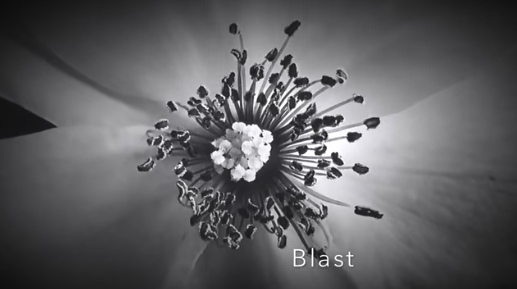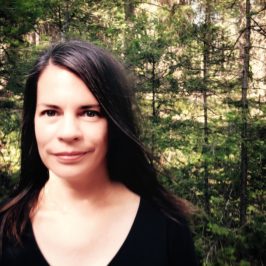
I’m a writer by training, but I became a filmmaker by accident. I was a late-adopter of smartphone technology, and I didn’t get an iPhone until I saw a 6s on clearance. Even then, I bought it for work. I didn’t really want one myself. But once I had it, I began exploring its features, starting with the camera.
My old digital camera had broken, and when I learned my iPhone could take high quality photos, I started snapping away. It didn’t take long for me to discover I could also shoot video, and a little searching on the internet opened my eyes to what filmmakers were already doing with their phones. “Tangerine” was released the year before I purchased my 6s. When I learned it was shot with an iPhone, I began to get ideas.
I had actually dreamed of becoming a filmmaker when I was a kid, but my parents didn’t have the resources to buy me a video camera. My childhood was “make do.” While other kids were playing with walkie-talkies, I had tin cans and string. I suppose comparing an iPhone 6s to a couple of empty Campbell’s Soup cans is a stretch but trying to make films with my phone reminded me of early creative years when I had to figure out how to do what I wanted with limited resources.
I had an iPhone, a tiny, powerful, modern-day wonder, but I couldn’t afford to purchase additional gadgets to enhance its movie-making ability: no macro lens, no tripod, no gimbal stabilizer, and no Apple iMac Pro with film-editing software. And I wondered what I could create with just the phone, my more-or-less steady hands, and a few free or cheap apps. That became my challenge and my rule. Poets say that form sets you free, so I decided that my iPhone would be my form for filming, composing scores, and editing. I wouldn’t use anything else. Even if there came a time when I could afford it, I decided I wouldn’t buy any extras and instead, relish my limits as a challenge. Here’s what I’ve learned from filmmaking as a result, and why I think my writing has benefited.
Getting started
Chapbooks in prose and poetry range from 10-30 pages. They’re often themed. Many are works of art in terms of design and printing. My first film project, “Remote Views,” used the chapbook as a model. The short, concentrated structure provided a useful guide for the development of my first experimental project: a series of seven films, each one-minute long, with an abstract/ambient quality using only found sounds and GarageBand (an app that came with my phone) to compose the scores. None of the films would be narrative. I wanted to evoke a mood rather than tell a story.
Reflecting on My Knowledge
I don’t actually know the rules of filmmaking, which is why I decided to rely on what I know about writing to help me get started. I know how to create a scene, a feel, a tone. I know about beginnings and endings, but I don’t always reflect on this knowledge. Filmmaking forced me to think about what I already know about composition and apply it to a different medium. This helped me as I produced my chapbook, but it also caused me to reflect on my own knowledge of writing, knowledge which often sits unexamined because it’s become automatic after years and years of classes and critiques and essays. Fiddling with the gears for filmmaking has helped me become a more conscious writer.
Setting Attainable Goals
When I’m writing, I often set my expectations too high and create goals that are unachievable. Filmmaking gave me a chance to be a novice again, and to show compassion for myself by setting smaller goals designed to increase my knowledge and skills. When I first conceptualized the chapbook, it seemed like a series of short films was more possible than taking on a long, storied feature, and this was critical to the completion of my project. If I’d set a more difficult goal early on, I probably would have given up. Instead, I treated myself like a student, and created a timeline with a target that was measurable and attainable. I gave myself a year to make the seven films, and I was able to complete the project. Now, I set similar goals with my writing that propel me forward instead of miring me down because I’ve set them too high.
Experimentation
Filmmaking has allowed me to experiment with abandon. Because it’s something I’m new to, I’m less afraid of making mistakes than I am as a writer. I’m supposed to be an expert at writing, and that creates a lot of perfectionist pressure. When I set out to make a new film, I often start intuitively with a photo or a bit of video I like, and I play with it until I have some visual imagery I find interesting. When I compose the score, I look around for a sound to sample: wine glasses, bottles, tin foil, dried garlic leaves, rocks, marbles, and cattle guards are all fair game. I don’t always have this freedom when writing, but as I continue to make films, this sense of experimentation has begun to give me permission to play on the page and to have some fun.
Letting Go of Perfectionism
Walt Whitman revised Leaves of Grass throughout his entire life. There’s even a “deathbed” version almost 400 pages in length grown from the original 12. It took Jean Rhys more than 20 years to write The Wide Sargasso Sea, and she still thought it was flawed once she’d finished. I love these books, but I don’t want to be trapped in the echo chamber of a single work tormented by my failure to realize perfection, though as a writer, I’ve come close. Conversely, when I complete a film and upload it onto YouTube, I don’t revisit it as a critic because this only creates agony: I’ll always see something I could have done differently. Instead, I try to forget about what I didn’t achieve and simply enjoy each new creation. If there’s a mistake, I learn from it but I don’t dwell, and that’s freeing. If it hadn’t been for filmmaking, I might never have learned this lesson. I’m still working to apply it to my writing, because even though perfectionism doesn’t enhance the quality of my work, it’s a hard habit to unlearn.
Making Something Out of Nothing
The first film in my chapbook is called “Blast.” I used a single photo of a rose and edited it about 20 times to create 20 changing images. I put these together into a film using iMovie. Then I recorded myself shaking a steel chime in GarageBand, and I used that sample to compose the score. The film I ended up with is an impressionistic nuclear blast with an alarm siren using just that rose and chime. I made something out of nothing—my own metaphorical violation of the first law of thermodynamics—and that reminded me that I can do the same with words. Sometimes, I overcomplicate my writing and overwork my prose. When I think about “Blast,” I remind myself that insight and invention can come from simplicity, and that’s probably been the most valuable lesson of all.

